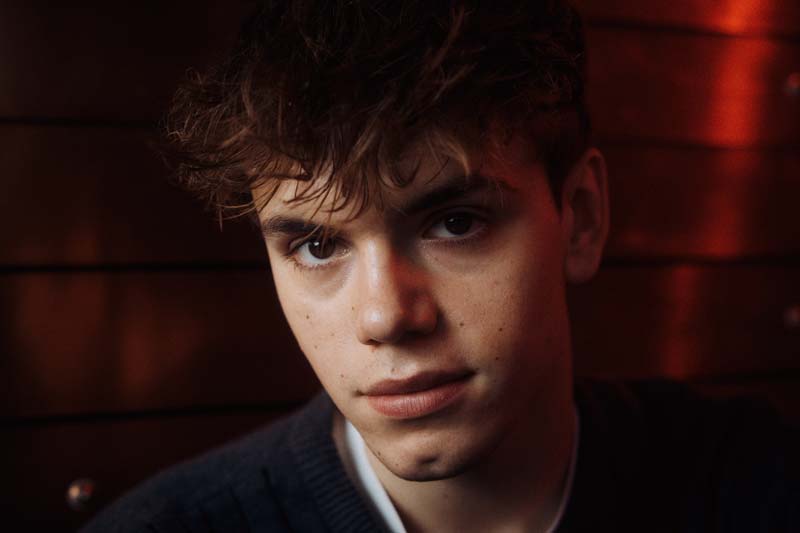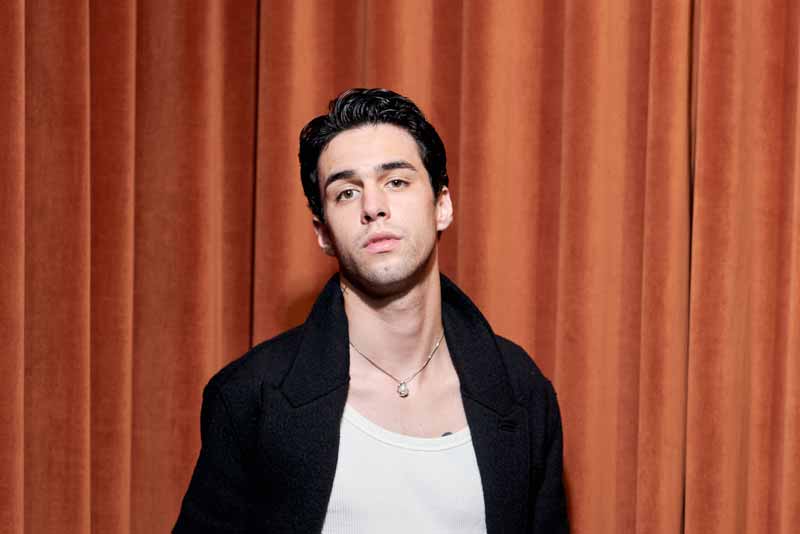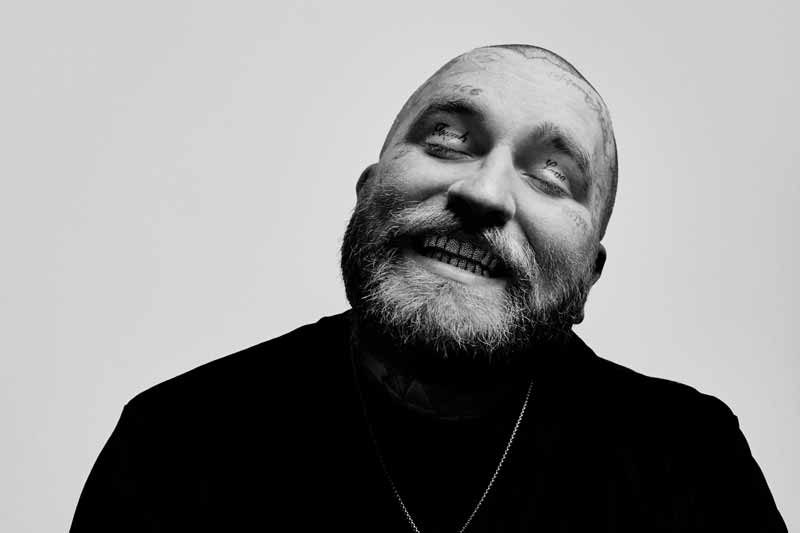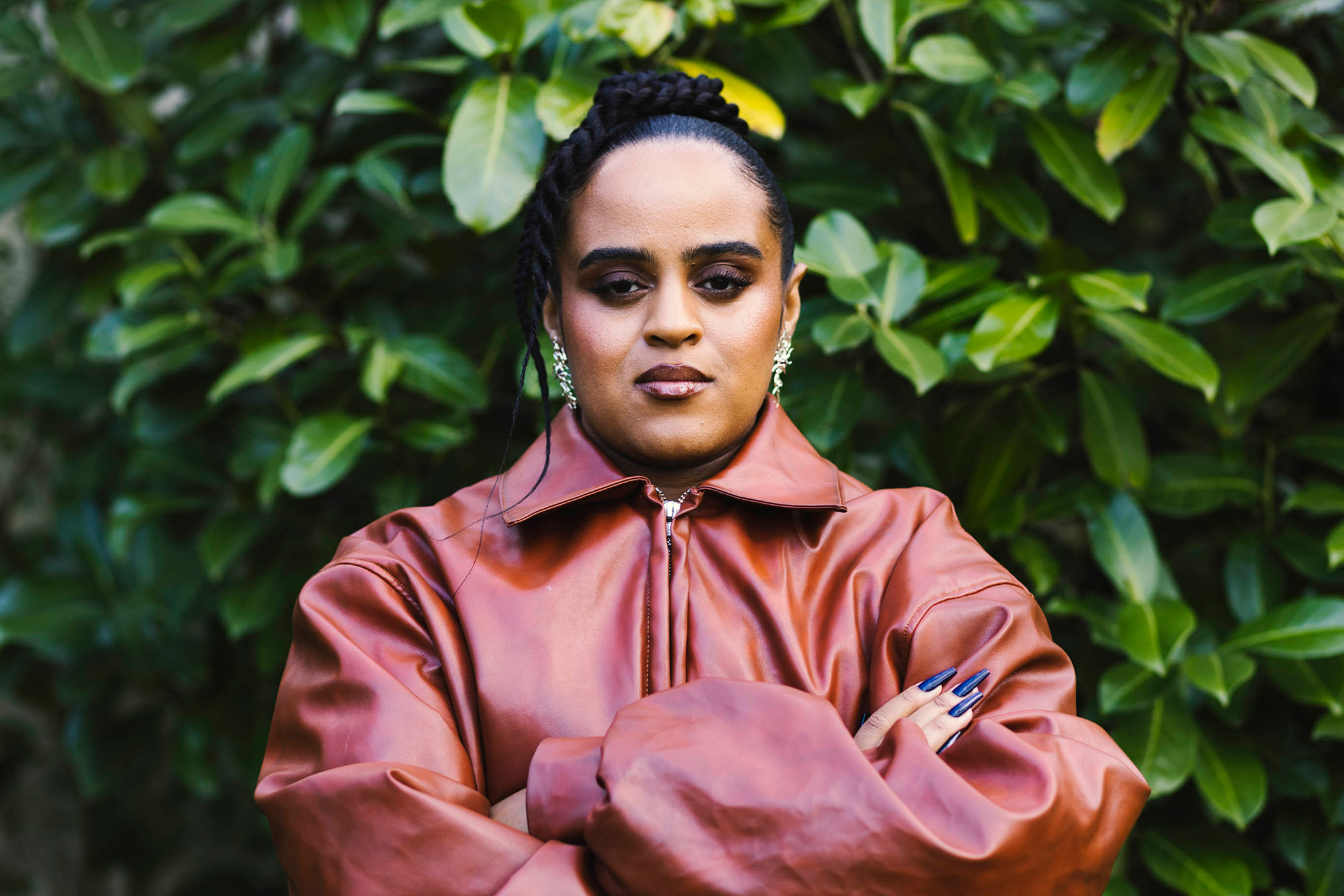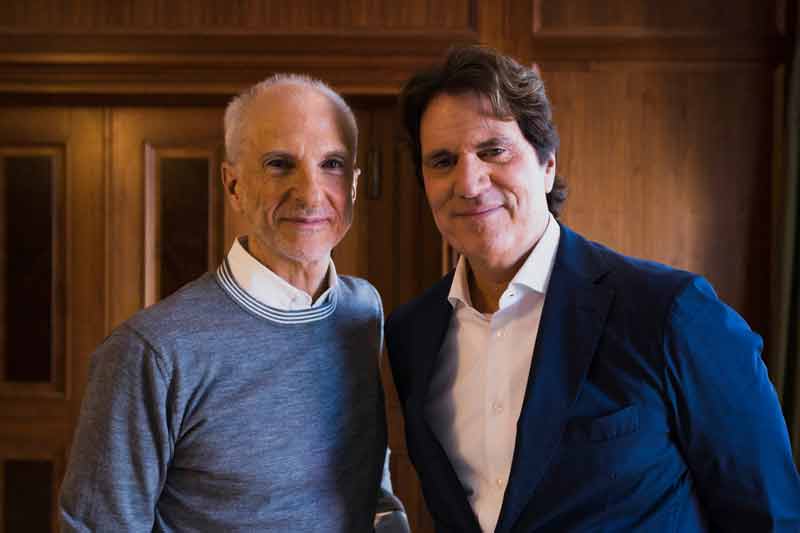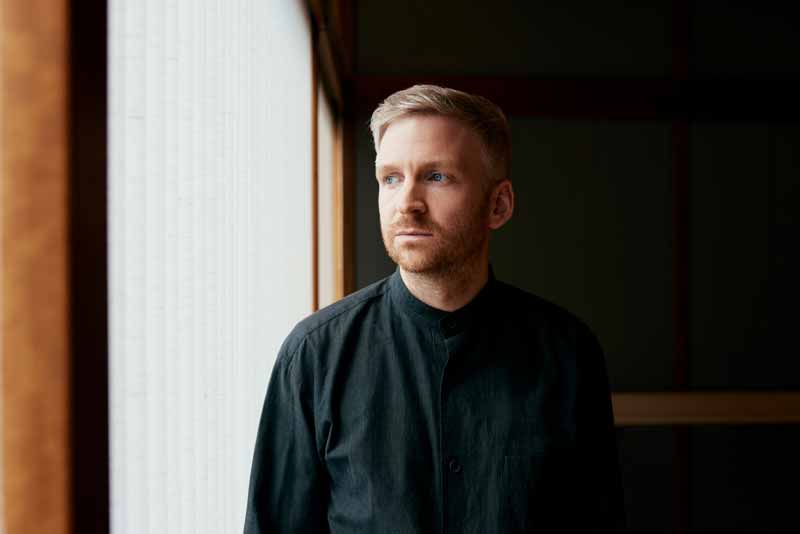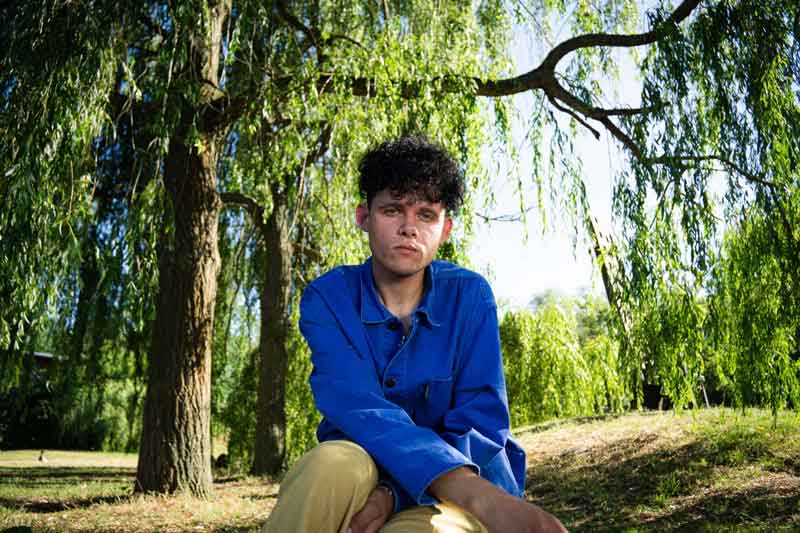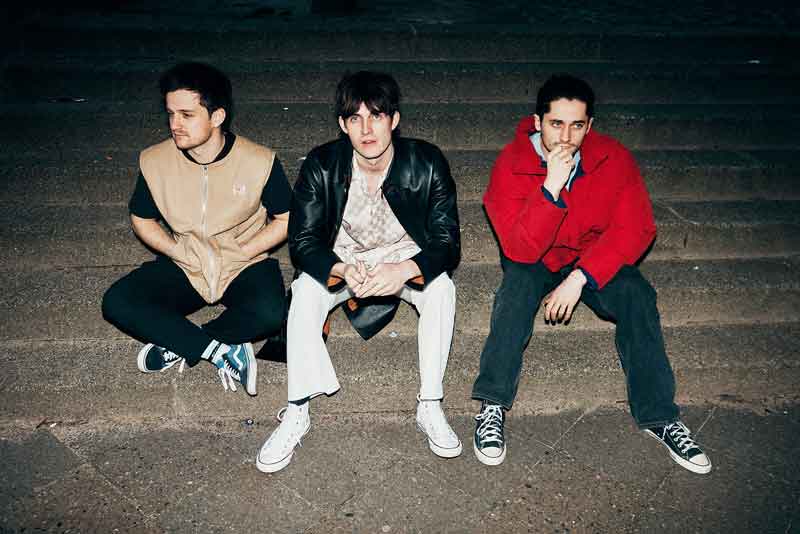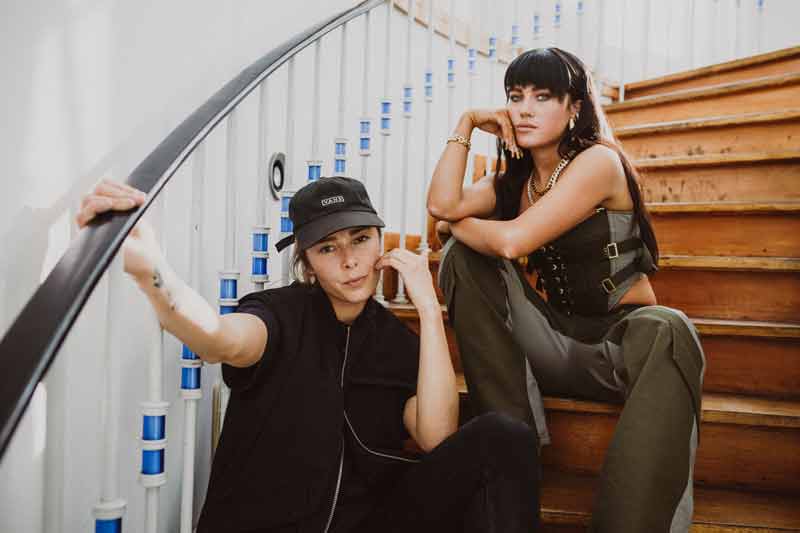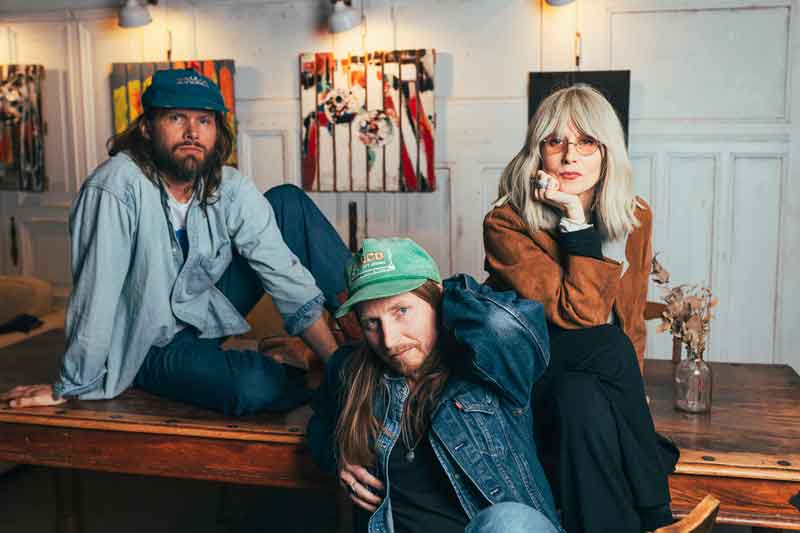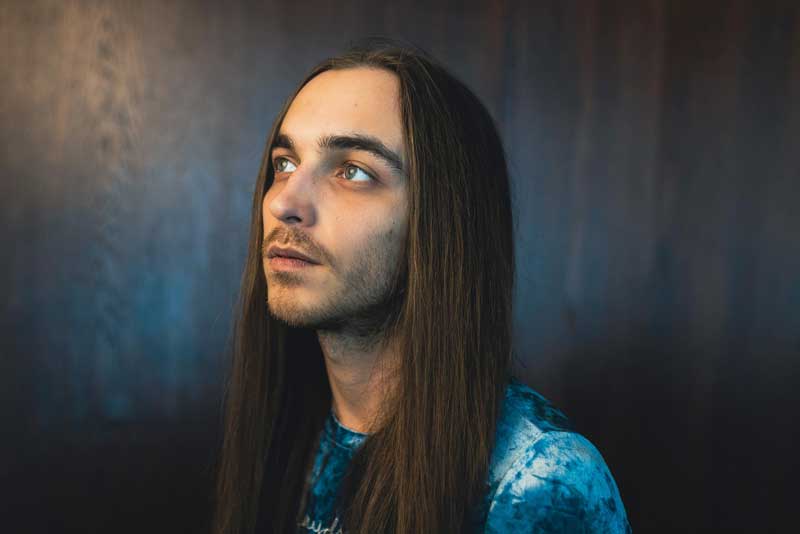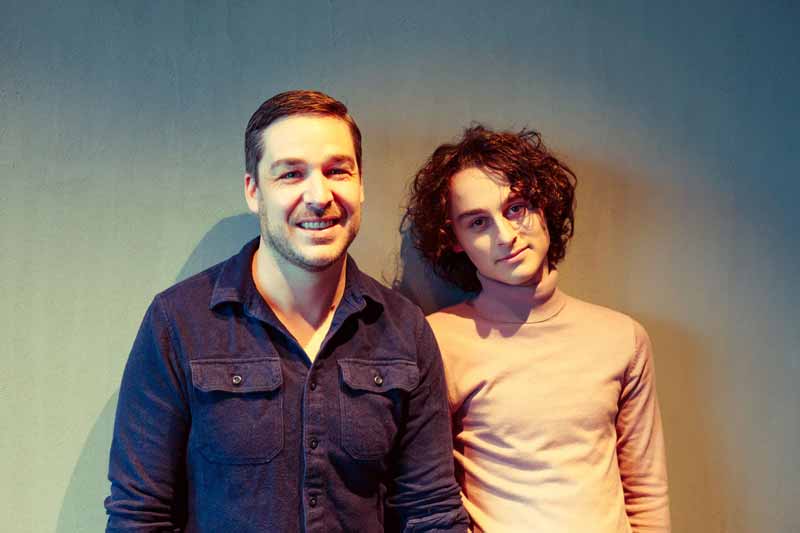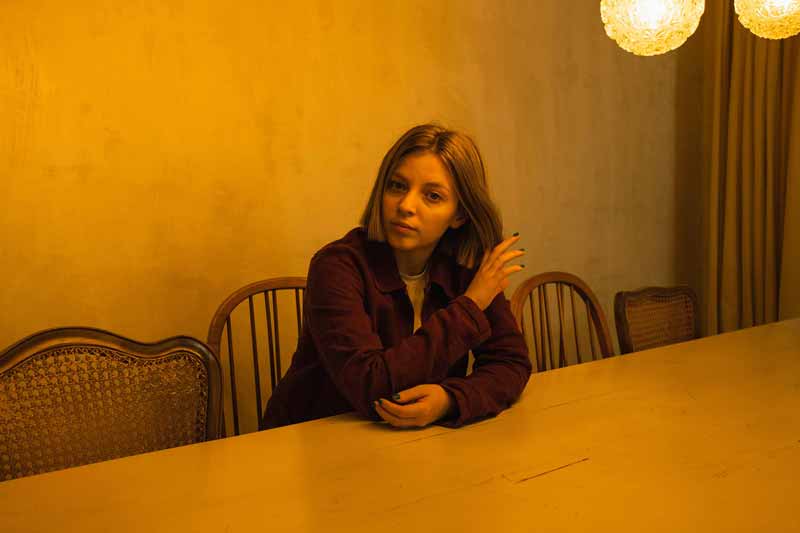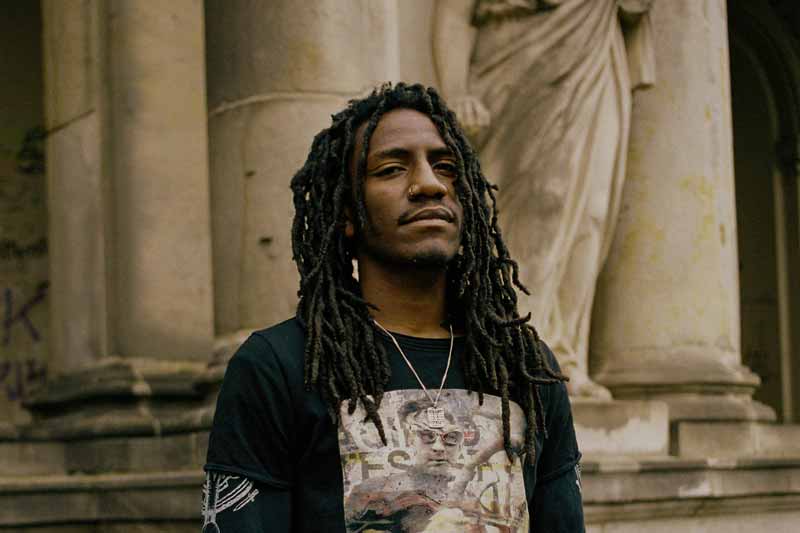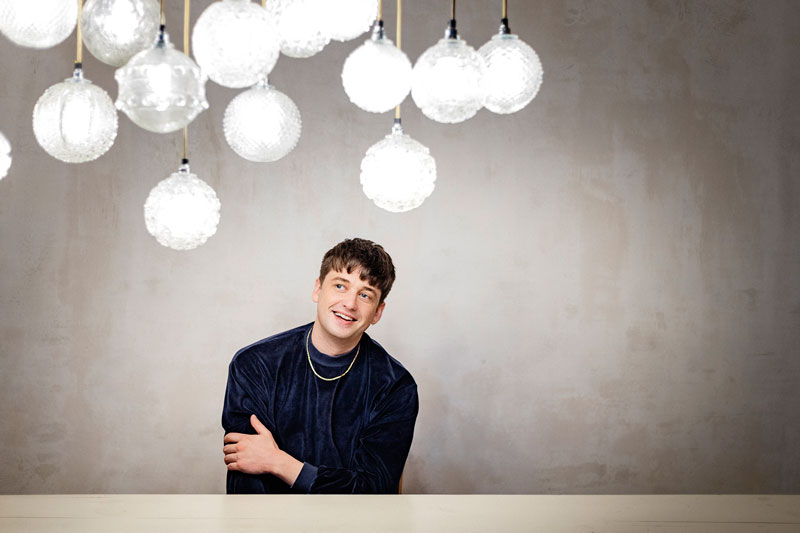Interview — Omar Apollo
A Longing Spirit
For just one year now, newcomer Omar Apollo has been enchanting the world with his soulful and expressive songs. The big talent of the 22-year-old Mexican-American is to combine emotional worlds that seem incompatible. What a musical find!
10. Juli 2019 — MYP N° 25 »Twilight« — Interview: Jonas Meyer, Photography: Maximilian König
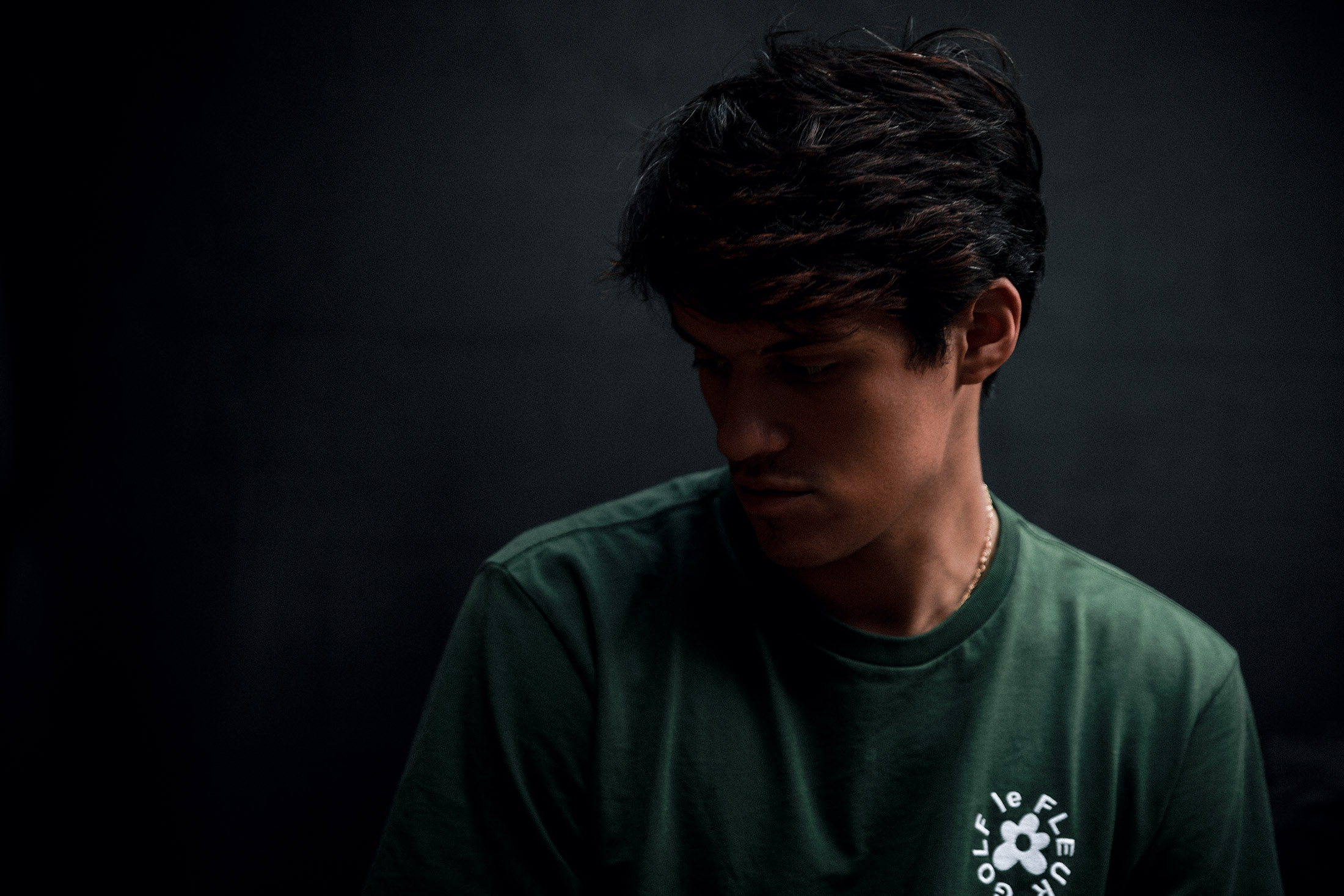
When we met Luke Pritchard—frontman of the legendary British band The Kooks—last summer for an interview, he drew a rather skeptical image of the music industry. He told us that when he was growing up, being in a band was kind of a working-class thing, whether it was the Gallagher brothers or Paul McCartney. But today, he added, “it’s definitely different and that’s really sad.” Luke told us that, in his opinion, it’s very hard to become a successful artist nowadays unless your parents are rich—because that’s the only way you can afford to spend the time working on music.
Indeed, the times we are living in are hard, especially for those who are not able to unfold their talents because they are not born on the sunny side of life. Nonetheless, there are still some brilliant examples that prove it’s possible to start from zero as an artist and create something extraordinary—as long as you work hard and keep chasing your dreams.
Of course, this sentence sounds more than cheesy, but it’s also true when it comes to Omar Apollo, a 22-year-old American from a small town in Indiana. Since last year, this young man with Mexican roots has been enchanting the world with his soulful and expressive songs. Omar’s big talent is to combine emotional worlds that seem incompatible—melancholy with confidence, vulnerability with strength, relaxation with energy. On top of all this, he smoothly slides between R&B, soul, funk, jazz, and pop.
It was never self-evident that this young musician would become a valuable part of the international music scene. Not so long ago, Omar was trapped in a situation where he couldn’t afford the $30 to put his music up on Spotify. It is only due to the help of a friend who believed in him that we are all lucky today to have such access to his songs (and perhaps also due to the fact that Omar dropped college after just two weeks to fully focus on his music).
A few hours before his concert at Badehaus Berlin and a couple of weeks after the release of his new EP Friends, we met the young musician for an interview and a photo shoot.
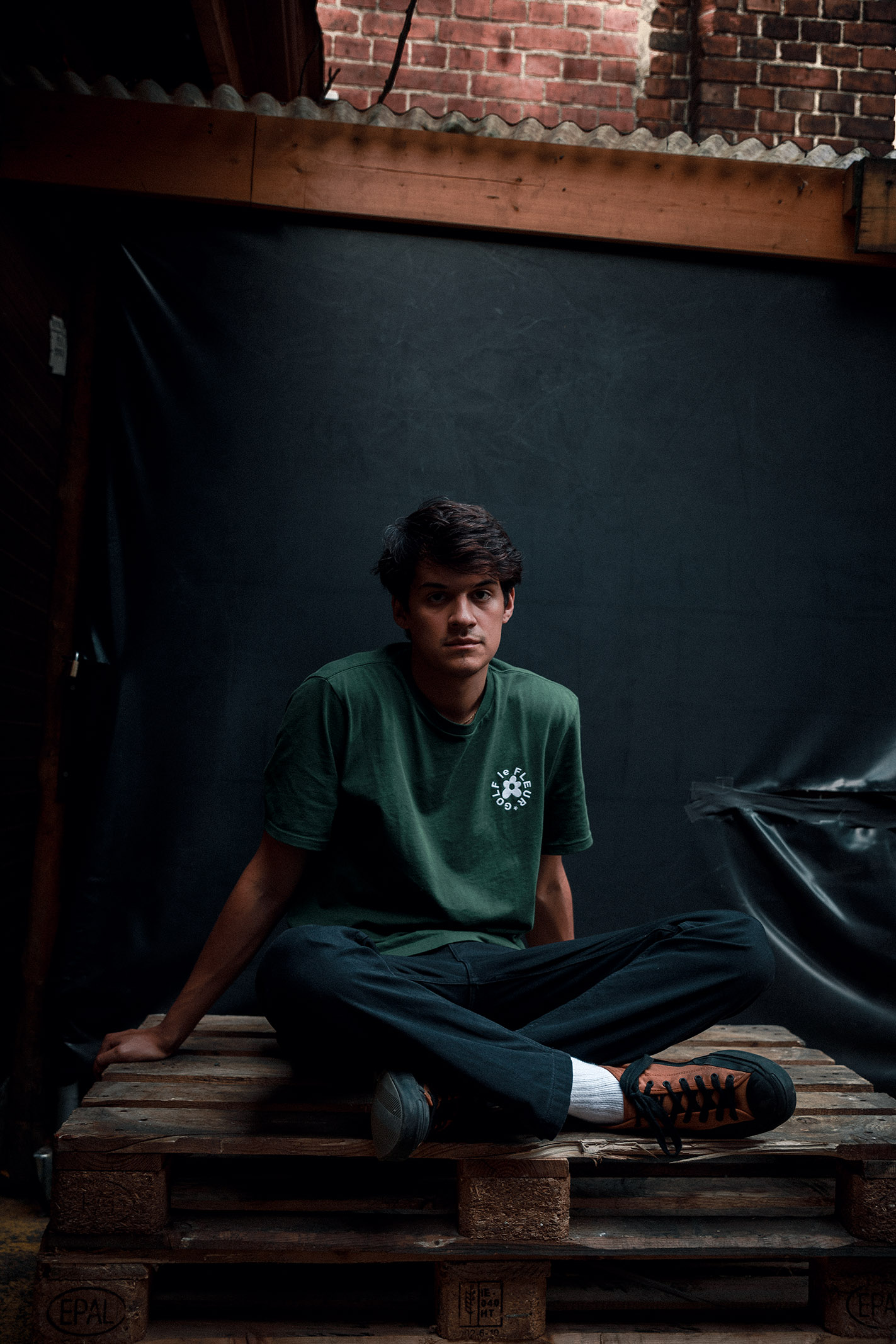
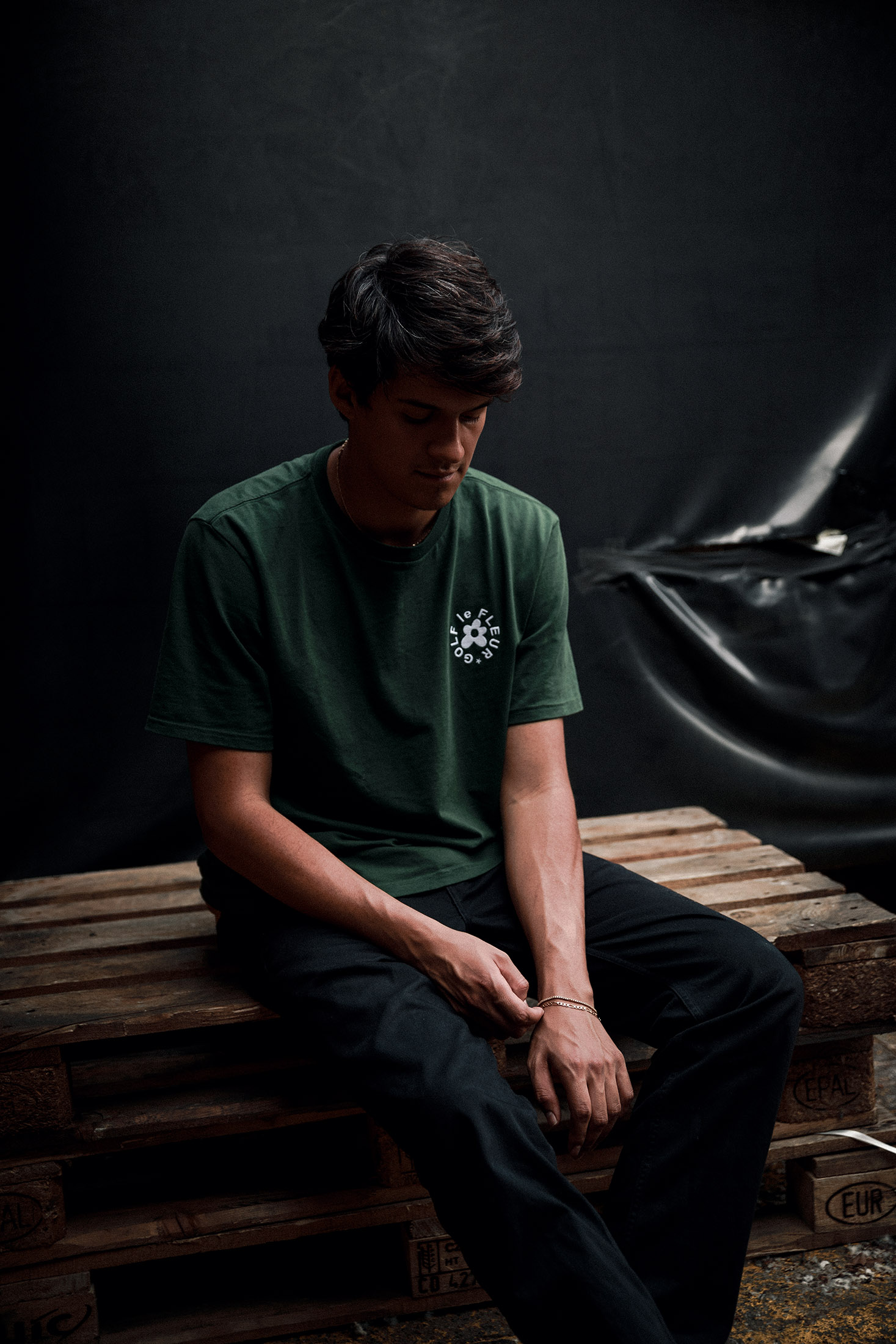
»At work, I was having all these musical ideas and when I got home late at night, I was just too tired to work on them.«
Jonas:
You grew up in Indiana, in a small town called Hobart. What kind of place is it? How did it feel growing up there?
Omar:
It’s very different from places like New York City or Los Angeles. There’s no traffic, but a lot of farms, cornfields, and horses—just a big, quiet openness with not much going on, ever.
Jonas:
When I learned that you used to work at a McDonald’s restaurant, I had to think of the time when my friend Max and I came to Berlin, sometimes not being able to pay the rent or even afford a beer in a bar. What made you keep going all the time, working hard every day to chase your dreams?
Omar:
Honestly, I have no clue. I just had to do it, I just had to work—because music also felt like something I had to do. I am always asked what my motivation was, and I talked about that with another artist who was in a similar situation. We both agreed that music has always been our one-and-only purpose and that’s the reason why we just went on. I can’t picture myself doing anything else. I love making music so much, I would die for it. It’s a very crazy feeling, but it’s the truth. Music can make you feel so many different things.
Jonas:
What did your everyday life look like? Going to school, working at McDonald’s, making music—when did you sleep?
Omar:
It was really bad for a while! At some point, I had to cut my hours at the restaurant because every time I came home, I couldn’t do anything. At work, I was having all these musical ideas and when I got home late at night, I was just too tired to work on them, not to mention that everybody in the house was already asleep, which made it impossible for me to make some music. Cutting work hours meant making less money, but it was just enough to eat and live.
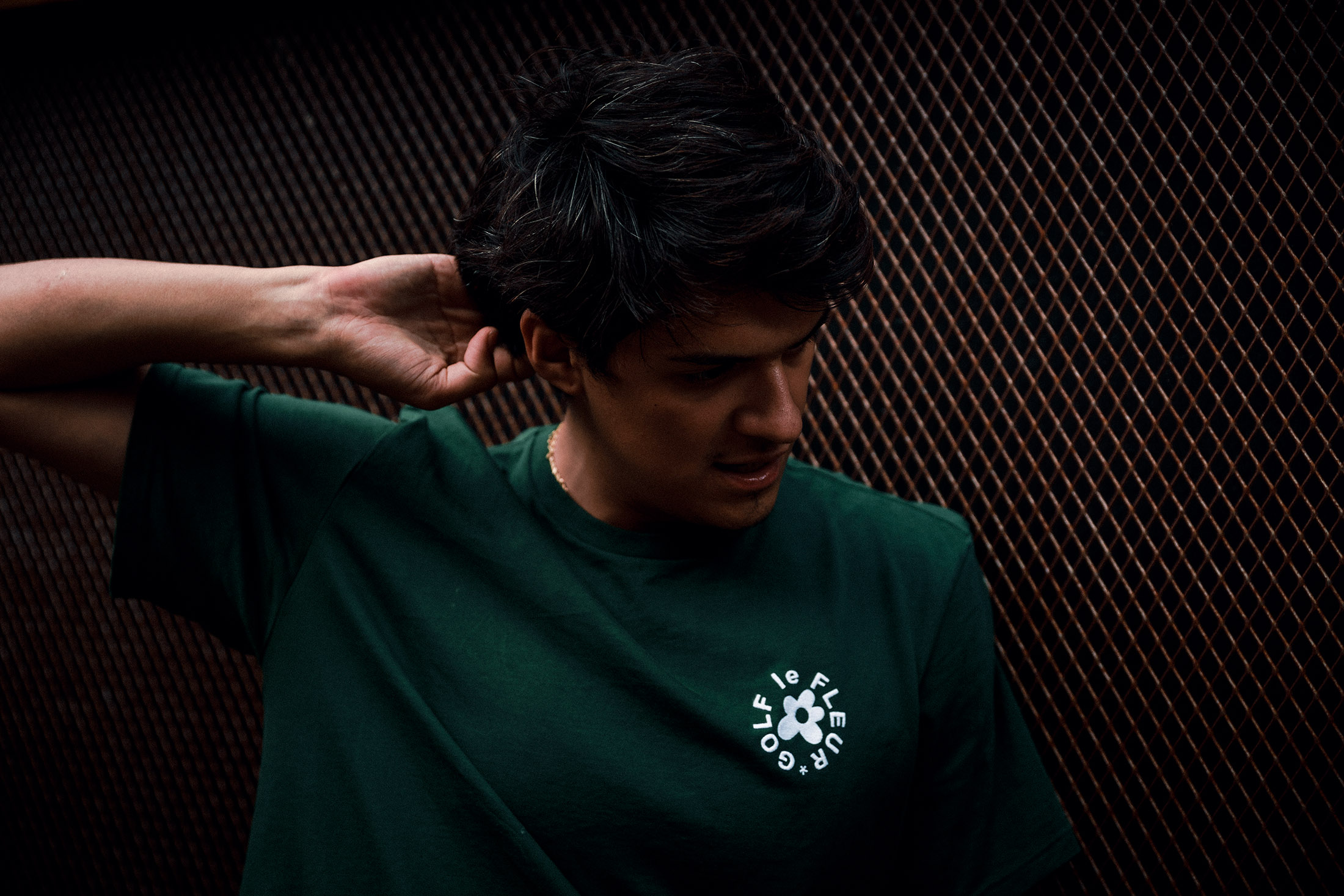
»When you love something that much, you’re going to be better at it.«
Jonas:
Our society is based on the idea of performance, success, making money and fitting in. How much courage did it take to drop college after just two weeks in terms of that?
Omar:
It was kind of depressing—but also relieving! I remember going to college and hearing people say, “It’s going to be less packed in a month.” I asked why and they said that a lot of people use to drop out in the first weeks. So, I guess I was one of them quitting pretty early. For me, it felt a little scary because I wasn’t good enough at making music at that time. I was just trying to get by. But when you love something that much, you’re going to be better at it.
Jonas:
How hard and difficult was it to explain your decision to your parents?
Omar:
That was weird. I never told my family before that I wanted to make music—although I was sitting in my room making beats all the time. But they wouldn’t know, they didn’t ask me. So they were kind of surprised when I quit college for music. I mean, I had a really bad GPA, I got into one college out of all, that’s the reason why my parents said, “Just stay at college, try it at least!” But I decided to drop.
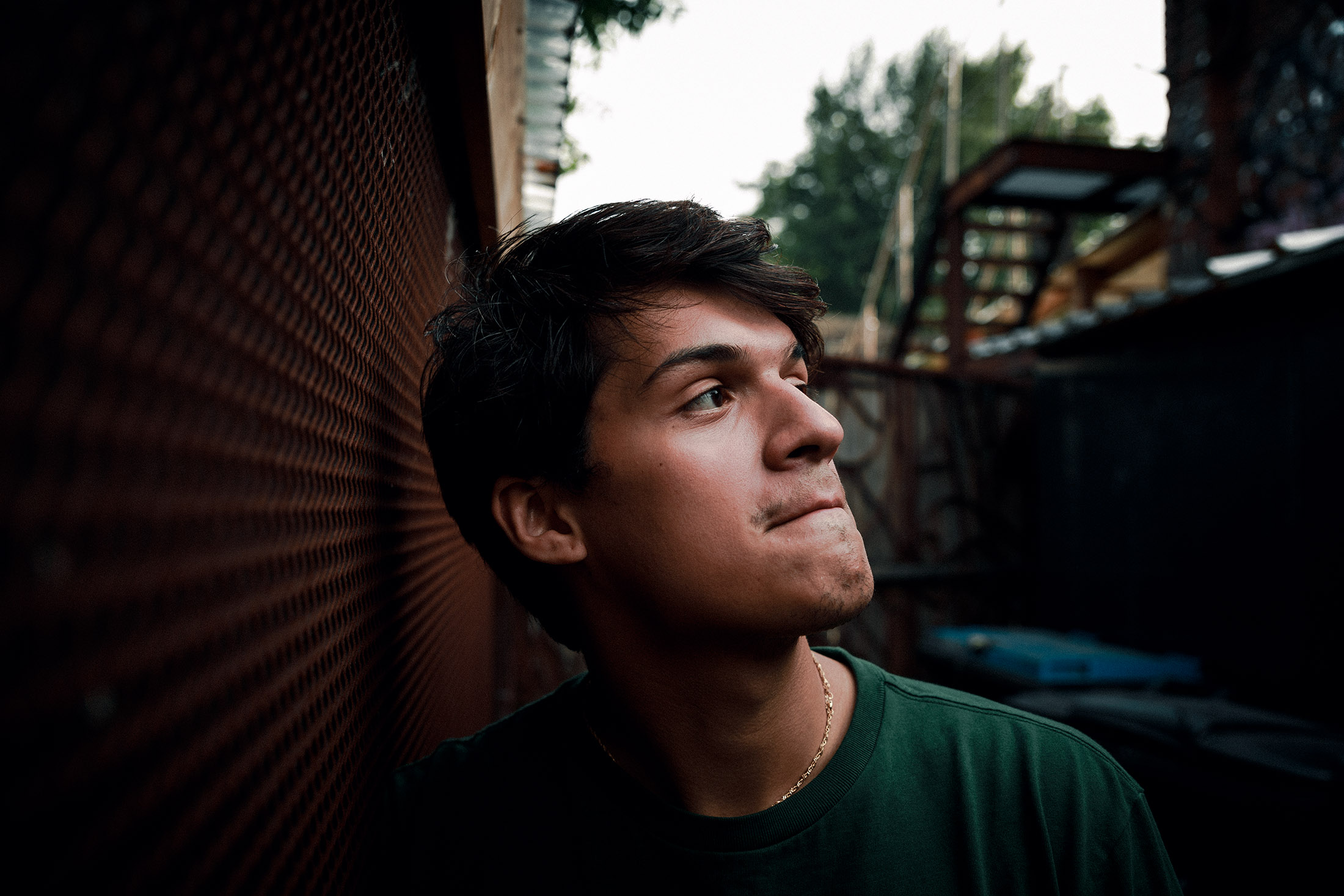
»Since your spirit can’t really talk, music is like the language of humans.«
Jonas:
I have to make a very personal and non-objective confession: I’m deeply touched by your song “Trouble”—and I was wondering why’s that all the time. I guess I’ve found an answer, it’s because it combines melancholy with confidence, vulnerability with strength. Is that merging of opposites the secret behind your music?
Omar:
I think so. I always have kind of a longing spirit, there’s a longing for a sense of who I am. But on the other hand, I feel very confident when I’m making music, even though some songs are dealing with being stuck in solitude or loneliness. But to be honest, I don’t really know where I get the melodies from, I don’t know where I get the words from. Making music and creating is like channeling your spirit. And since your spirit can’t really talk, music is like the language of humans. I mean, just ask yourself: Why do humans love music so much? Why do thousands of people come to a show just to watch one other person playing some songs? It’s because music gives you something and this one artist makes you feel something. And at the same time, the artist is also feeling something from all those who came to listen to his music. It’s always an exchange—and a crazy energy thing.
»People believe in you when they see that you are genuine.«
Jonas:
Last year we had an interview with Luke Pritchard, the frontman of The Kooks. He said that it’s very hard to become a successful artist nowadays unless your parents are rich—because then you can afford to spend the time working on music. Luke told us that when he was growing up, being in a band was kind of a working-class thing, whether it’s the Gallagher brothers or Paul McCartney. What challenges did you face in your life in terms of that?
Omar:
I mean, I couldn’t afford the $30 I needed to upload my music on Spotify, I didn’t have a dime. I was lucky that I could borrow the money from a friend who has always been believing in me—and people believe in you when they see that you are genuine which, in my opinion, comes from just trying to be a good person.
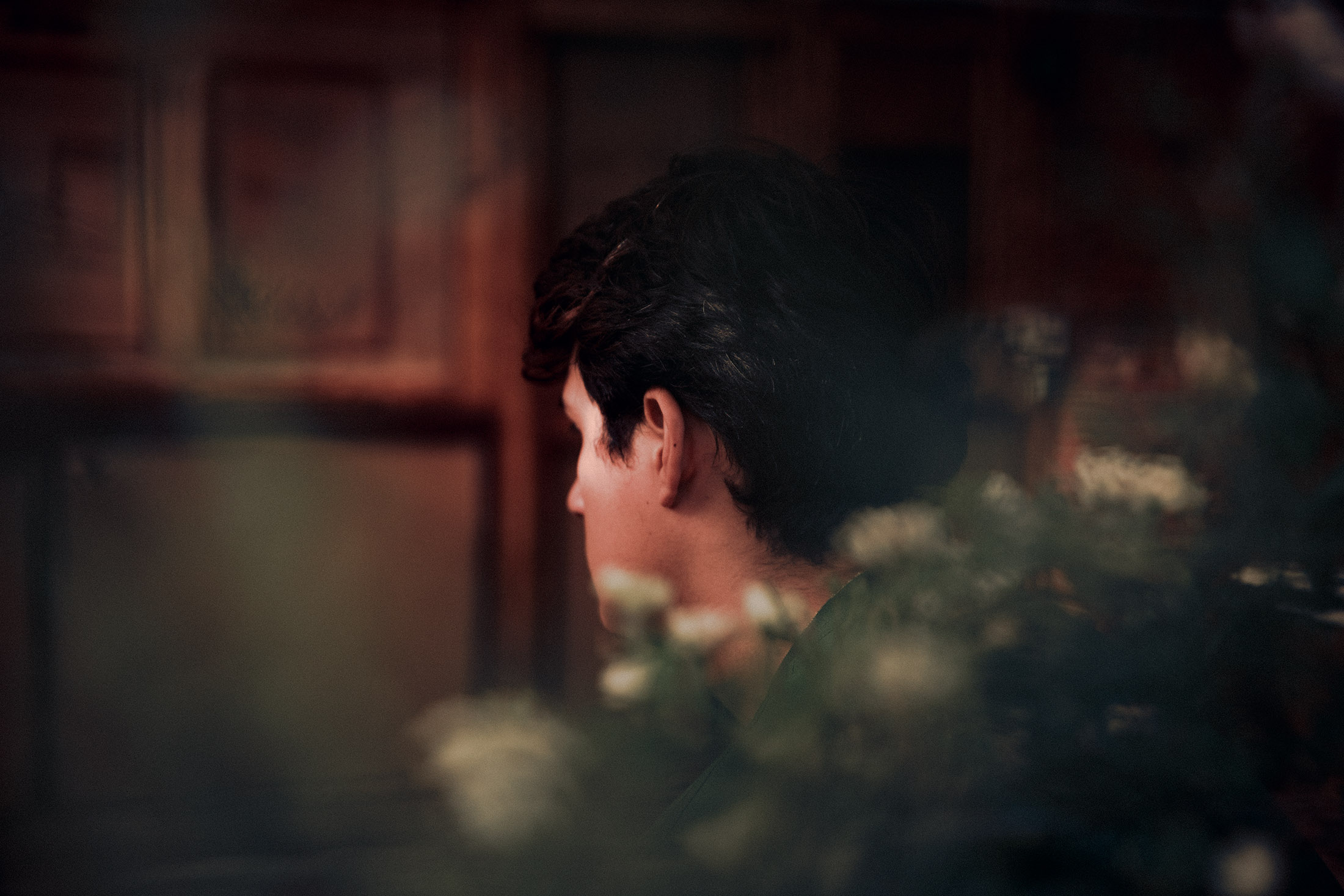
»I told my parents that they have to stop worrying about money and that everything will be fine.«
Jonas:
Sometimes thirty bucks can mean the world…
Omar:
That literally changed my life! When I was younger, my mom was always stressing about money. She constantly said, “We don’t have any money. We don’t have any money.” I was doing what I could to help. When my dad needed ten bucks, I gave it to him. But I also told my parents that they have to stop worrying about it and that everything will be fine. They asked me, “How can’t you be worrying about it? We have to pay bills!” And I answered, “Just stop thinking about it, there will be a way.” One time I needed $10 so badly, I really needed it because I had to pay my rent and I was $10 short. The landlord didn’t give a fuck and I didn’t know what to do. I walked outside and there was a lady who asked me if I could help her move her stuff from the garage into the house—and she gave me ten bucks.
Jonas:
Some people call it “ordering from the universe.”
Omar:
Yeah, God and the universe aren’t letting me fuck up.
Jonas:
How can we as a society do better to promote all those kids who are struggling with life conditions where it’s hard for them to unfold their talents?
Omar:
Support your locals! Tell your friends about them, go to their shows, buy their stickers, repost their stuff! But don’t fake it, support them just when you really like what they do. I was always afraid that people feel sorry for my situation and support me because of that. You can tell when someone deserves it, you know? I just needed someone who honestly said, “I really like your music, man!” That was enough for me for the whole week.
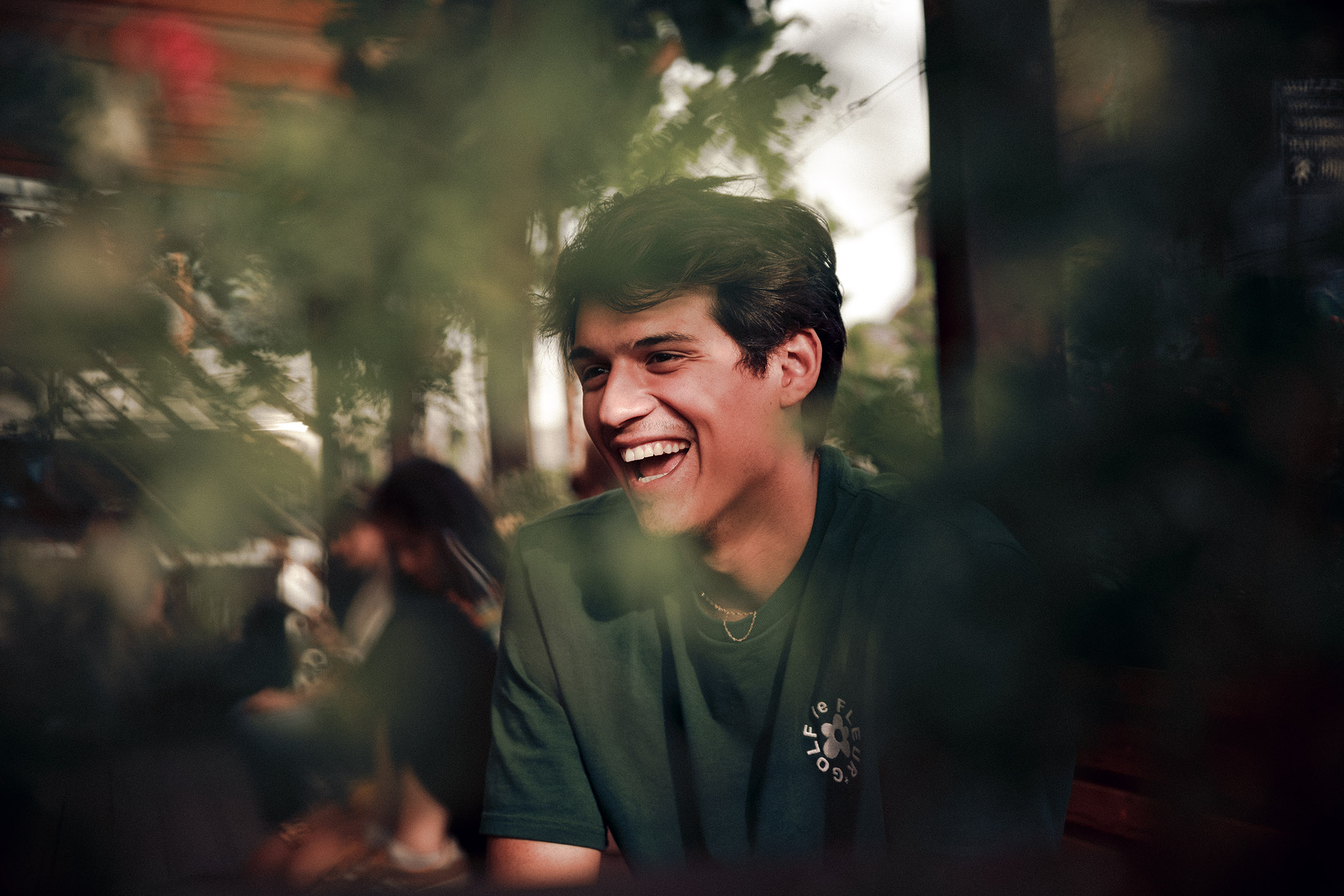
»The times are over when I didn’t want to do anything in my life. But I’m still young and naïve.«
Jonas:
What do your parents say today, witnessing you travel the world and be praised by so many people that like your music? Do they worry less now? Have they calmed down a little bit?
Omar:
My dad loves it, but my mom is much more worried than before. She just sees this young dude travel the world alone, she’s always asking if I get enough sleep and all those mom things. My dad is a lot cooler about it. But all in all, they are really motivating. I mean, the times are over when I was super-exhausted, tired and anxious—when I didn’t want to do anything in my life. But I’m still young and naïve. My parents always text me “¡échale ganas!” It’s a Spanish saying which means “Give it all you’ve got and keep trying!”—but in a cool way. That’s how they have paved my way.
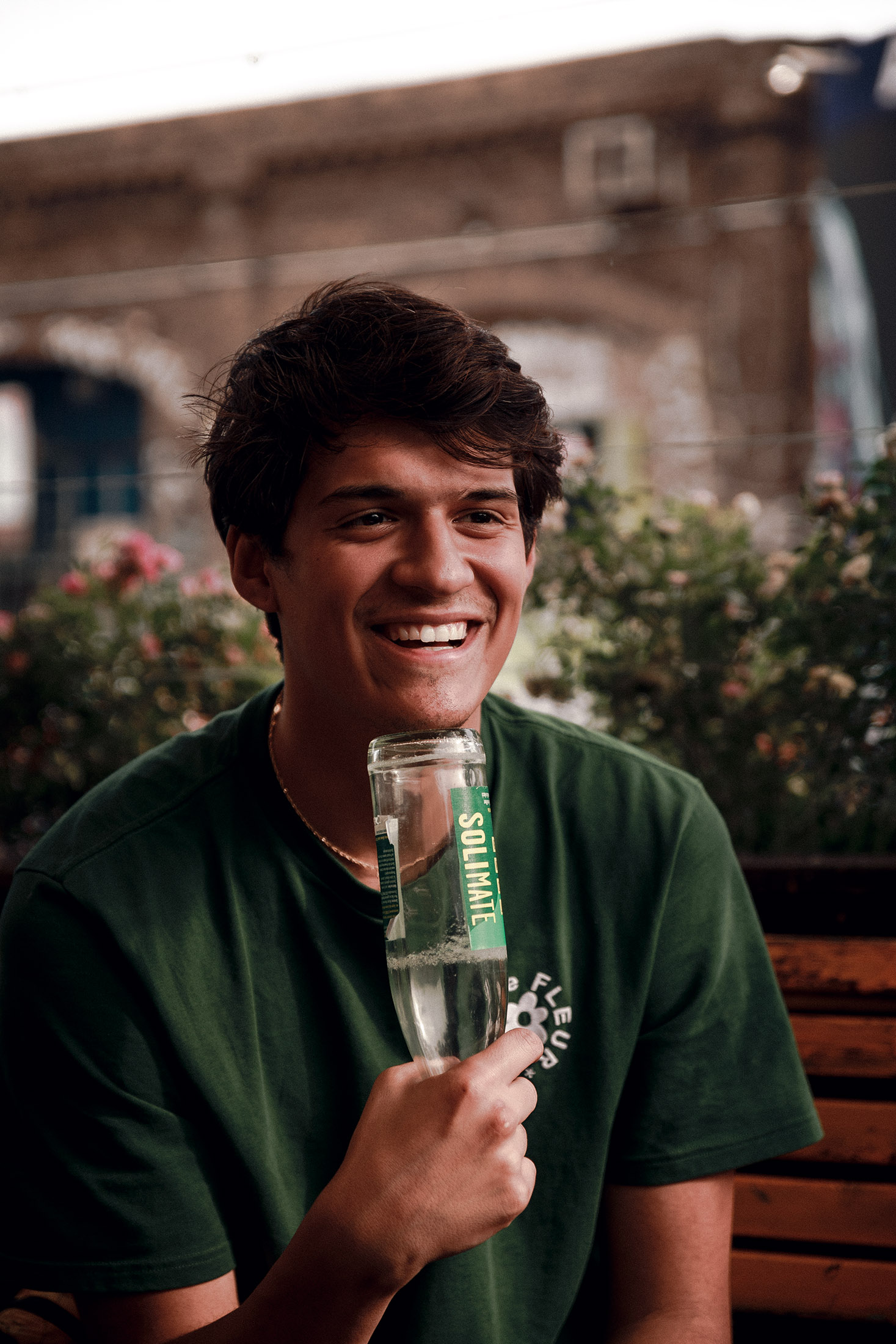
#omarapollo #mypmagazine #maximiliankoenig
More about Omar Apollo:
omarapollo.com
facebook.com/omarapollomusic
instagram.com/omar.apollo
Photography by Maximilian König:
maximilian-koenig.com
instagram.com/studio.maximilian.koenig
Interview by Jonas Meyer:
Editing by Benjamin Overton:
